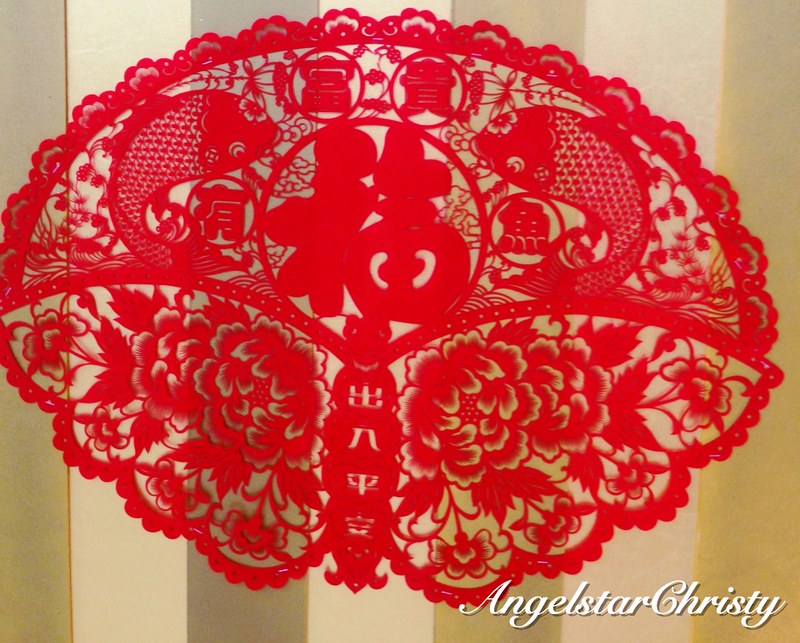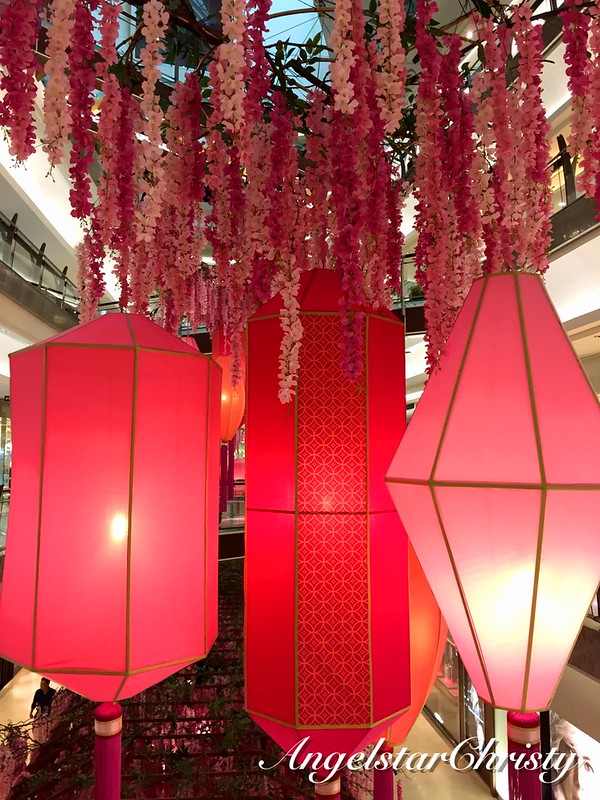
"That was how the monster, Nian, was driven out of the village, and the villagers never saw it again, though, to make sure it doesn't ever come back, the practice of bright lights, red colors and loud sounds continued until this very day.
And, that, was how we came to celebrate Chinese New Year"
The gaze from two round and shiny eyes fell upon the storyteller, and in just an instant, little hands pressed on his laps as strings of words poured out in a tiny squeak, excitedly,
"Ah Kong, then where did the monster go? If I don't wear red, will the monster come to find me instead? Tell me Ah Kong, tell me..."
(*Ah Kong is an affectionate term used to address grandfather in the Hokkien/Teochew dialect)
The old man looked down at the little boy and smiled, as he recollects the number of times he has been asked the same question.
Why, even he himself has asked that question as a little boy.
The story of Chinese New Year continues to be one that everyone and anyone will continue to pass down from one generation to another; from one interested listener to another who never knew the origins of the festive celebration.
There are probably more than one version of the origins of the festival which is celebrated by all the Chinese worldwide (yes, it is that big of a deal), and there are just ways one can connect to their own way of celebration relating to their values and practices, though in general, the Chinese New Year, or perhaps more technically, the Lunar New Year is significant as a brand new beginning.
We are no strangers to the story of Nian itself, and I myself could recall the numerous times I have heard of the story retold; with a tiny bit of sugar and salt thrown in unexpectedly sometime too.
Nevertheless, we all look forward to the festive celebration as it approaches; monster or not, while incorporating the practices as mentioned in the story, such as the bright red colors dominating the overall theme of the festival, along with loud firecrackers and gathering of crowds (particularly families).
In short, the Chinese/Lunar New Year festival is nothing short of vibrance and merriment.
Like that little boy earlier, we have probably asked the many "Why's" as we observe the practices in the festival and that is normal, for it just means we are curious and we are keen to know about our own culture.
Why do the Chinese celebrate the Lunar New Year?
Why is it celebrated this way?
What is the Lunar/Chinese New Year anyway?
But, most importantly, who are the Chinese?
Who are WE?
In asking the questions and finding out the answers, it is far more important than just following the celebration of the festival itself, for without knowing the answers, the Lunar/Chinese New Year, is just, well, as it sounds, in name only, a festival.
Sure, it is fun and exciting to be whisked away by the exuberance of any festival; the food, the company, the fun and the overall ambience of it all, but that is just as far as the sentiments go.
They are just that festive mood that will come and then disappear along with the end of the festive celebration.
It all dies down, and then all goes back to normal, until the next year, that is, when all that fervor over the festivities returns.
It is just a repetitive cycle.
That probably explains why the young are always jumping for joy when the festivities loom near (or perhaps it is because of that bonus cash in red packets and that free passport to indulge in food and drinks), while the older ones and the elders are just well, not quite as excited anymore.
For them, it is just, another year.
One's knowledge of a story of an origin is just another addition to the collection of knowledge and stories heard/read, and it will always remain in that state.
Knowledge is power, true, but understanding is the key to empowering that knowledge.
We all know of the story, we all know of the origins and also the variants of how the New Year is celebrated all around the world, but how many truly do understand the meaning of the Lunar New Year, and most of all, how many understand the Chinese culture?
Perhaps it is not about why the Chinese New Year is celebrated by the Chinese, nor why the Chinese New Year exists, but rather, fundamentally, who Are the Chinese?
Who are We?
Festival is part of the culture, and it is only in understanding who we truly are, that the festival brings that meaning for festival and culture is part of that whole picture.
Our Identity.
Who are the Chinese?
Who, are WE?
Identity is what makes our existence, our culture, our nation and the festivals are all just part of the package.
We need to know our identity, before we can know our culture.
Without that understanding, we are just another bystander or perhaps just someone who is attending a party and leaves when the party ends (when Chap Goh Meh marks the end of the Chinese New Year celebration).
Perhaps instead of telling our children and grandchildren about the story of Chinese New Year alone, we should also include that whole part about who the Chinese are.
It is our Identity that makes up our community, population and the nation.
It is only then that we can wear our badge with pride; that badge of identity of who we are and then the Chinese New Year will truly take on a whole new level of brightness as pride shines on.
Do You, know, WHO you are?

*As the Chinese New Year is just around the corner, I am excited to share a few stories and articles related to the festival (not your usual documentaries or popular legends, but rather something more insightful). It is more than just sharing, for it is also my own learning and understanding as I take a deeper look into the whole festivity of the Chinese New Year myself.
You do not have to agree with me.
Art Direction and Photography Styling by Me.
Photos/Videos all belong to me and are copyrighted.
Please kindly ask for permission if you need to use any of my images.
Check out my Pinterest @Angelstarc
Follow me on my live updates on my life, happening on SNAPCHAT @angelstarchrist



0 comments